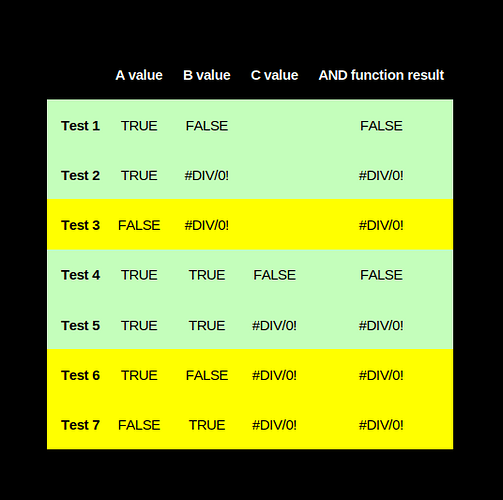I noticed today that the AND function always resolves all inputs, regardless if any of them have been found to be FALSE already. I have never seen that in a programming language, so not sure if this is a spreadsheet thing or what. But in my experience with many programming languages, the boolean function “AND” always returns FALSE after it encounters the first input that is FALSE. There is no need to examine the remaining inputs as none of them can turn a former FALSE into a TRUE etc. Thus, this is both a performance issue and a logic/rational issue. It’s based on the industry acceptable definition of the boolean logic AND gate.
But here is a screenshot from Calc. You can see that Tests 3, 6, and 7 reveal that ALL inputs are examined leading to the solution being a divide by zero error when it would have returned FALSE after the first FALSE input encountered.

